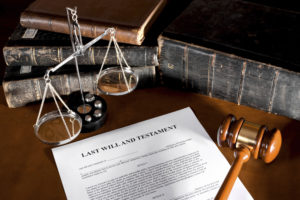
Drafting a last will and testament is an important part of estate planning. However, even with the critical importance of having a will, a recent AARP survey found that 20% of Americans over the age of 45 don’t have one.
Detailing your wishes helps to eliminate unnecessary work and potential stress and anxiety when a loved one dies. Wills let your family act with the decedent’s wishes in mind, and a will can make certain that assets and possessions wind up in the right hands.
The Oakdale Leader’s recent article, “Things People Should Know About Creating Wills” says that when you meet with an experienced estate planning attorney, he or she will likely discuss the following topics with you:
Assets: Create a list of known assets and determine which assets are covered by your will and which are to be passed through joint tenancy, beneficiary designations, or a living trust. For instance, life insurance policies or retirement plan proceeds are often not subject to your will; they are distributed directly to the beneficiaries you named on the policy. Your will often controls assets with no beneficiary named and no joint owner.
Guardianship: Parents’ wills should include a clause that states who they want to become guardians of their minor children.
Pets: Some people use their will to state the guardianship for their pets and to leave money or property to help care for them. However, it is important to remember that pets don’t have the legal capacity to own property, so don’t give money directly to pets in your will. In some states, you can establish a pet trust.
Funeral directions: Probate won’t occur until after the funeral, so funeral wishes in a will often go unnoticed. You can let your Personal Representative (or Executor) know your wishes in a separate document.
Personal Representative ( or Executor): A Personal Representative or Executor is a trusted person who will carry out the terms of your will. He or she should be willing to serve and be capable of administering the will.
People who die without a valid will are “intestate,” which means the estate will be settled based on the laws of where that person lived. The court will appoint an administrator to transfer property. However, the administrator is bound by law and may make decisions that go against the decedent’s wishes. To avoid this, make sure you have a valid will and other estate planning documents.
Reference: Oakdale (CA) Leader (March 27, 2019) “Things People Should Know About Creating Wills”

